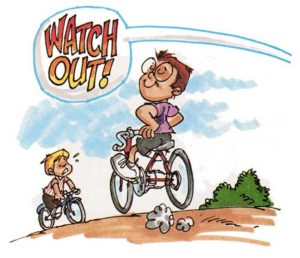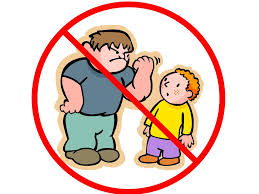by James Burns | Mar 26, 2018 | Academics, Anti Bullying, James Burns, School Administrators, School Climate Conference
 When I was in high school I was given a assignment to do in a 9th grade social studies class. I was given two weeks to complete it but, like most kids I procrastinated until the night before. I turned in the assignment the next day. Many of the projects that the other students turned in were handed in stapled together, some in binders, some with report covers over them. Mine was turned in with a paper clip holding together two sheets of handwritten paper. About a week later the teacher turned the projects back. He never gave me mine back but, ask to see me after class. When I met with him he looked at me and said, “What is this.” I responded by saying, “That’s my project.” He then asked, “Is this the best you can do?” I said, “No, I guess I could have done better.” He then asked me, “Are you capable of doing better?” I said. “Yes.” He then proceeded to tell me that he wanted to meet with me after school to help me put a project together that would improve my grade because what I turned into him was most definitely and F. He took the time to help me do research, write better, and showed me how to put a report together. He had academic expectations that I was never exposed to in the 8th grade but made sure that he gave me all the help I needed from him to meet those expectations. I ended up with a B+ on the project. Thanks to him.
When I was in high school I was given a assignment to do in a 9th grade social studies class. I was given two weeks to complete it but, like most kids I procrastinated until the night before. I turned in the assignment the next day. Many of the projects that the other students turned in were handed in stapled together, some in binders, some with report covers over them. Mine was turned in with a paper clip holding together two sheets of handwritten paper. About a week later the teacher turned the projects back. He never gave me mine back but, ask to see me after class. When I met with him he looked at me and said, “What is this.” I responded by saying, “That’s my project.” He then asked, “Is this the best you can do?” I said, “No, I guess I could have done better.” He then asked me, “Are you capable of doing better?” I said. “Yes.” He then proceeded to tell me that he wanted to meet with me after school to help me put a project together that would improve my grade because what I turned into him was most definitely and F. He took the time to help me do research, write better, and showed me how to put a report together. He had academic expectations that I was never exposed to in the 8th grade but made sure that he gave me all the help I needed from him to meet those expectations. I ended up with a B+ on the project. Thanks to him.
What actually happened here? Because of this teacher’s academic standards and because of his demand for high quality work I developed such respect for him and had an unquenchable desire to want to please him. I not only worked on my assignments with much more rigor, I paid attention in class, and studied in a much more productive way for my tests and quizzes. His demand for academic excellence made me more respectful for him and his subject area and more responsible for my own academic success.
When teachers have low expectation for the academic progress of their students they probably have low expectations for their behavior as well. They begin to buy into the excuses that students, parents, and yes even sometimes administration uses to justify poor academic performance. Excuses like, poor home environment, ADHD, and of course blaming the previous year teacher all become part of student academic failure. Demanding academic excellence is something all teachers can do. As stated in the previous chapter holding students accountable by asking for the work to be done and re-done forces the child rise to the occasion and to begin to want to please a demanding teacher. That’s a good thing. It develops respect for the subject area, others members of the class, and most of all respect for themselves. It improves behavior as well. By making students focus on academics there is not time to act up in class. They might miss something and have to re-do an assignment because of yes, a careless errors, errors that would not have been made if they took their work seriously, and respected the teacher and the material that was being taught. Demanding high quality work pays off. The students will thank you in the future. I learned that 40 years ago.
School Climate Control Conference
by James Burns | Mar 26, 2018 | Academics, Anti Bullying Coaching and Resources, Careless, Teachers, The Bully Proof Classroom
Children today bring home report cards for their parents review about four times during the school year. Parents can attend two to three parent teacher conferences to receive reports on how their children are doing academically and behaviorally. During these conferences teachers at times communicate to parents that their sons or daughters are doing fine, but they need to take their time with their work because they just seem to make careless mistakes. In reality their children are not doing well academically but for some reason teachers feel that poor student performance is a reflection of their teaching ability, not a student’s work ethic. There is only one way to measure a student’s performance and to determine whether a not they have mastered the material that was taught, and that’s by assigning a grade associated with the work that the student completes. Grades like and A. B. C. or 80%, 90%, or 100% are part of reality and children and parents need to be given a clear idea of whether or not the material that was taught was actually mastered with an appropriate grade assigned.
 So, why are children careless? The biggest reason is that teachers from the first grade on accept work that is sub par, and doesn’t communicate the truth to the student or parent that the work submitted is unacceptable. Carelessness just becomes part of life and parents believe their child isn’t academically deficient but just makes careless mistakes, doesn’t pay attention, is a day dreamer, or just plain old lazy. The truth is the child hasn’t mastered the material that was taught.
So, why are children careless? The biggest reason is that teachers from the first grade on accept work that is sub par, and doesn’t communicate the truth to the student or parent that the work submitted is unacceptable. Carelessness just becomes part of life and parents believe their child isn’t academically deficient but just makes careless mistakes, doesn’t pay attention, is a day dreamer, or just plain old lazy. The truth is the child hasn’t mastered the material that was taught.
The way for teachers to resolve the problem is to raise their level of expectation and to put in place more stringent grading practices that give a true indication of the student’s performance. By doing this students will have a better understanding of their abilities, and when taken seriously will motivate the student to pay attention, and to be more careful with the work that is turned in.
Revise – Re-do – Retake
To start this process any work that that is handed in whether it is homework, class work, tests, or quizzes should never just be handed back to the student with the mistakes noted. The work should be handed back with the mistakes noted and with the understanding that if the student grade was 80% or less the entire assignment must be done again. It may take a few re-do’s but once the student gets the idea that certain grades are unacceptable they will be less careless and more careful when they turn in assignments the first time. This not only motivates the student but gives them the opportunity to master material that would otherwise just be handed back to them with a poor grade. Students must revise writing assignments, re-do, careless work, and retake tests if their grade was 80% or less.
Poor academic performance is a result of students not having the necessary pre requisite skills to perform at a higher level. The only way to resolve the problem is to go back to the academic areas that were not mastered by the student and make them repeat the areas of deficiency until mastered. To a school district this can be costly and create a great deal of parental and community discord. So, by today’s standards that is almost impossible to do. Why not be tougher on students academically the first time around and really get them to master the material that is being taught. Stop using the excuse that the students are careless and start using tougher grading practices that will make students more careful and most of all more responsible for their academic progress..
Helping Students Retain Information
by James Burns | Mar 19, 2018 | Anti Bullying 101, Bully Proof Classroom, James Burns
 The past is the past, right? Wrong. The past can and will dictate the future if we allow ourselves to be measured based on our failures rather than our successes. Let’s face it. We all have failed or fallen short from time to time. Just because we have failed does not mean we are a failure. It just means we did the best with what we knew at the time. Parents can do this once they take a look at the lifestyle or the behavior of their grown children. If you are a parent, take heart: you did your best with the information you had in the process of raising your children. If you are a teacher and have had your share of problems and headaches and feel like the funds are low and the debts are high, don’t look back. Don’t drive while looking in the rear view mirror; you will hit a future tree. Gandhi once said, “Be the change we wish to see in the world.” What changes do you want? A kinder and gentler place for kids to come, have fun, and learn? Realize that you are the one that has the capacity to facilitate the change. Have you goofed up in the past? So what? The past is the past, so please don’t ever let it remind you of what you are now. Let the past remind you of what the future holds when you finally let go.
The past is the past, right? Wrong. The past can and will dictate the future if we allow ourselves to be measured based on our failures rather than our successes. Let’s face it. We all have failed or fallen short from time to time. Just because we have failed does not mean we are a failure. It just means we did the best with what we knew at the time. Parents can do this once they take a look at the lifestyle or the behavior of their grown children. If you are a parent, take heart: you did your best with the information you had in the process of raising your children. If you are a teacher and have had your share of problems and headaches and feel like the funds are low and the debts are high, don’t look back. Don’t drive while looking in the rear view mirror; you will hit a future tree. Gandhi once said, “Be the change we wish to see in the world.” What changes do you want? A kinder and gentler place for kids to come, have fun, and learn? Realize that you are the one that has the capacity to facilitate the change. Have you goofed up in the past? So what? The past is the past, so please don’t ever let it remind you of what you are now. Let the past remind you of what the future holds when you finally let go.
by James Burns | Mar 18, 2018 | Anti Bullying, Anti Bullying 101, Anti Bullying Tips, Bully Proof Classroom, James Burns
 It is always nice to receive compliments, but sometimes we need to ask ourselves, “how free are we with compliments toward others?” Teachers as a group can be very stingy with complimenting other teachers. It is as if teachers think that by complimenting another teacher, they will be diminishing their own worth. Get into the habit of paying a professional compliment to someone each day. We all need to be affirmed and recognized for our efforts. Just think about how good you feel when someone pays you a compliment, and give another teacher the opportunity to experience the same good feeling. How does this help stop bullying? It is all in the example and attitudes we set. Our students will notice and be freer with compliments themselves.
It is always nice to receive compliments, but sometimes we need to ask ourselves, “how free are we with compliments toward others?” Teachers as a group can be very stingy with complimenting other teachers. It is as if teachers think that by complimenting another teacher, they will be diminishing their own worth. Get into the habit of paying a professional compliment to someone each day. We all need to be affirmed and recognized for our efforts. Just think about how good you feel when someone pays you a compliment, and give another teacher the opportunity to experience the same good feeling. How does this help stop bullying? It is all in the example and attitudes we set. Our students will notice and be freer with compliments themselves.
by James Burns | Mar 16, 2018 | Anti Bullying, Anti Bullying Tips, Bully Proof Classroom, James Burns, Uncategorized
Don’t Be An Easy Target
10 great tips that can be used with kids grades 3-8. Read them to the kids or let them read them themselves. These tips will help kids think, cope, and make common sense choices when it comes down to bully proofing themselves.

Click On The Image To Learn More
 When I was in high school I was given a assignment to do in a 9th grade social studies class. I was given two weeks to complete it but, like most kids I procrastinated until the night before. I turned in the assignment the next day. Many of the projects that the other students turned in were handed in stapled together, some in binders, some with report covers over them. Mine was turned in with a paper clip holding together two sheets of handwritten paper. About a week later the teacher turned the projects back. He never gave me mine back but, ask to see me after class. When I met with him he looked at me and said, “What is this.” I responded by saying, “That’s my project.” He then asked, “Is this the best you can do?” I said, “No, I guess I could have done better.” He then asked me, “Are you capable of doing better?” I said. “Yes.” He then proceeded to tell me that he wanted to meet with me after school to help me put a project together that would improve my grade because what I turned into him was most definitely and F. He took the time to help me do research, write better, and showed me how to put a report together. He had academic expectations that I was never exposed to in the 8th grade but made sure that he gave me all the help I needed from him to meet those expectations. I ended up with a B+ on the project. Thanks to him.
When I was in high school I was given a assignment to do in a 9th grade social studies class. I was given two weeks to complete it but, like most kids I procrastinated until the night before. I turned in the assignment the next day. Many of the projects that the other students turned in were handed in stapled together, some in binders, some with report covers over them. Mine was turned in with a paper clip holding together two sheets of handwritten paper. About a week later the teacher turned the projects back. He never gave me mine back but, ask to see me after class. When I met with him he looked at me and said, “What is this.” I responded by saying, “That’s my project.” He then asked, “Is this the best you can do?” I said, “No, I guess I could have done better.” He then asked me, “Are you capable of doing better?” I said. “Yes.” He then proceeded to tell me that he wanted to meet with me after school to help me put a project together that would improve my grade because what I turned into him was most definitely and F. He took the time to help me do research, write better, and showed me how to put a report together. He had academic expectations that I was never exposed to in the 8th grade but made sure that he gave me all the help I needed from him to meet those expectations. I ended up with a B+ on the project. Thanks to him.








